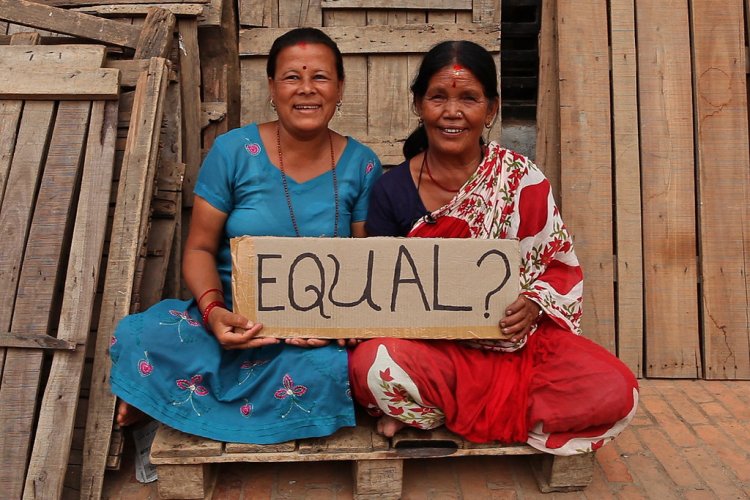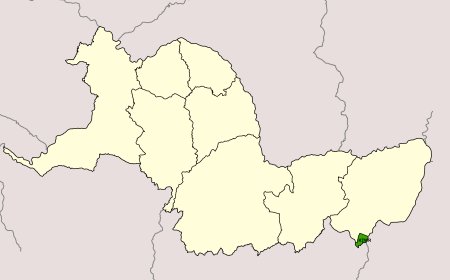Role of Women in Nepali society
Discover the role of women in Nepalese society, as well as their challenges, successes, and accomplishments. Find out how Nepalese women are overcoming barriers and transforming their societies.

In the past, Nepal operated as a patriarchal society where men held positions of leadership within the family and were deemed superior to women. As a result, women had limited involvement in the social field and society as a whole. They were often restricted to their homes, tasked with bearing children and performing household chores, as it was believed that this was their primary purpose. For centuries, their contributions were confined to the household, and their bodies and minds suffered from a lack of nutrition and repression. Girls were prohibited from attending school, as it was assumed that their only role was to visit other homes and take care of household tasks, rendering education unnecessary.
Despite the historical oppression and deprivation that women in Nepal have faced, they have been able to overcome these challenges and have made significant strides in various areas. Women are increasingly proving their worth and showcasing their capabilities in fields that were once considered the sole preserve of men. They are demonstrating that they can excel in traditionally male-dominated sectors and are showing the world that they are not weak and are just as strong as men.
Nepali women have shown resilience, determination, and strength in various areas. Women are increasingly taking leadership roles in politics, business, and other fields. They are breaking barriers and shattering stereotypes, showing the world that they are just as capable as men in these areas.
Women's political participation in Nepal has grown gradually over the last few decades. In recent years, significant efforts have been made to ensure that women are represented in the world of politics. When Nepal established a quota system in 1991, it sought to expand women's participation in politics by allocating 33% of seats in the national parliament to women. It helped increase women's political visibility and impact. Women have made major strides in politics in recent years. Women occupy several high-level posts in Nepal's government, including the President and the Speaker of the House of Representatives. Women are also well represented in structures of local administration, such as municipal councils.
Here are some of the notable women who are involved in politics:
-
Bidya Devi Bhandari:
She is the former president of Nepal, the first woman to hold the position of president, and the second person to become president of Nepal. -
Onsari Gharti Magar:
She was the first female Speaker of the House of Representatives in Nepal and served from 2015 to 2018. -
Sahana Pradhan:
She was the first female Deputy Speaker of the House of Representatives in Nepal and served from 1999 to 2002. -
Shanta Chaudhary:
She is the Minister of Agriculture and Livestock Development in the Nepali government. She was appointed to the position in 2018. -
Urmila Aryal:
She is a member of the Nepali Congress political party and was appointed as the Minister of Women, Children, and Senior Citizens in 2019.
Women are constantly striving to make an impact in the business world as well. They are launching successful startups and leading existing firms as entrepreneurs. The growth of microfinance companies, which provide small loans and financial services to women entrepreneurs, has contributed to the growing role of women in Nepali business. Government policies and initiatives have also contributed to the advancement of women's entrepreneurship and economic empowerment. In addition, the government has created the Women Entrepreneurship Development Program to provide training and support to women who want to start their own companies. Many other groups have also played an important role in encouraging women's entrepreneurship and economic empowerment.
Here are some of the women who are involved in the business:
-
Kunti Shahi:
She is the founder and CEO of Smart Tech Solution, a software development company based in Kathmandu. She is also the founder of the Women's Business Center, which provides training and support to women entrepreneurs. -
Sabrina Singh:
She is the co-founder of Aji's, a popular chain of Mexican restaurants in Kathmandu. She is also the founder of Sabrina Singh and Associates, a marketing and advertising agency. -
Rita Singh:
she is the founder of the IEC College of Art and Fashion, which offers courses in fashion design and merchandising. She is also the founder of the Rita Singh Foundation, which supports education and empowerment initiatives for women and girls. -
Roshni KC:
She is the founder and CEO of Khaalisisi, a waste management startup that connects waste collectors with buyers. -
Sushmita Pandey:
She is the founder and CEO of Urban Girl, an online shopping platform that specializes in women's clothing and accessories.
In the field of social and development work, women are at the forefront. They are making significant contributions in various fields, such as education, health, and human rights. In urban areas, many Nepali women are working to enhance access to education for women, recognizing that education is crucial in breaking the cycle of poverty and promoting gender equality. They are also focusing on improving health outcomes for their communities through initiatives like maternal and child health programs, HIV/AIDS prevention and treatment, clean water and sanitation, and other health services. Furthermore, Nepali women are playing a critical role in promoting human rights and social justice by addressing issues like gender-based violence, human trafficking, and child labor.
Some of the Nepali women who are contributing to the field of social and development work are:
-
Anuradha Koirala:
She is the founder of Maiti Nepal, a non-governmental organization that works to combat human trafficking and support survivors of trafficking and gender-based violence. -
Pushpa Basnet:
She is the founder of the Early Childhood Development Center and Butterfly Home, which provide housing and education to children whose parents are incarcerated in Nepal's prison system. -
Radha Paudel:
She is the founder of Action Works Nepal, which works to improve the lives of women and girls in rural areas through initiatives like menstrual hygiene education, health programs, and advocacy. -
Rita Thapa:
She is the founder of Tewa, a women-led fund that supports grassroots women's organizations and promotes women's leadership and empowerment. -
Sharmila Karki:
She is a social worker who works to provide education and support to women and girls in rural areas, with a focus on menstrual hygiene education.
Nepali women have come a long way and are making significant contributions to the development of the country. Despite significant challenges, women are showing that they can be leaders and change agents in a variety of fields. Their determination, resilience, and grit serve as an example to others and demonstrate that gender should not impede success.
What's Your Reaction?








































































































